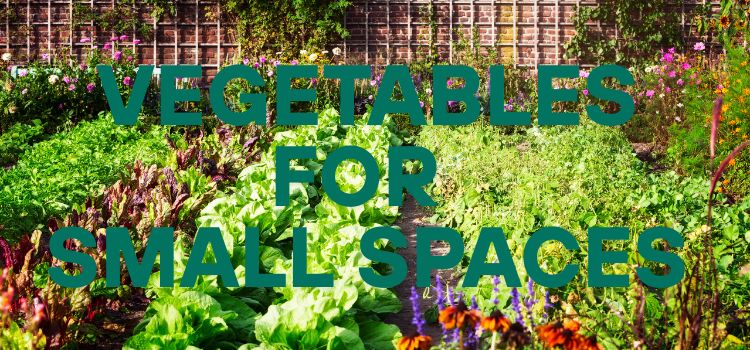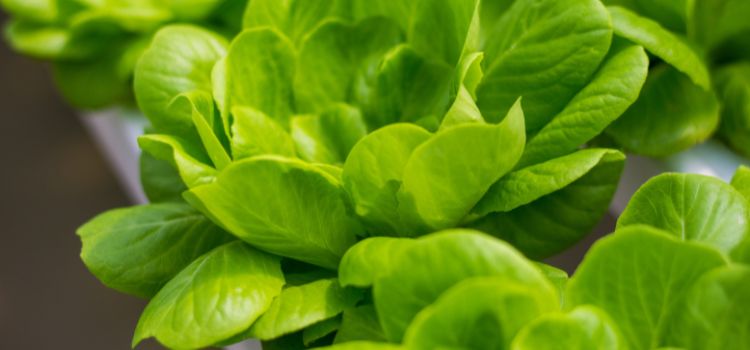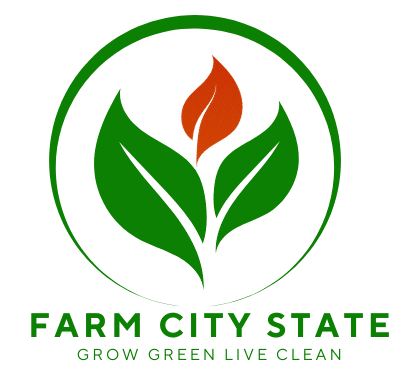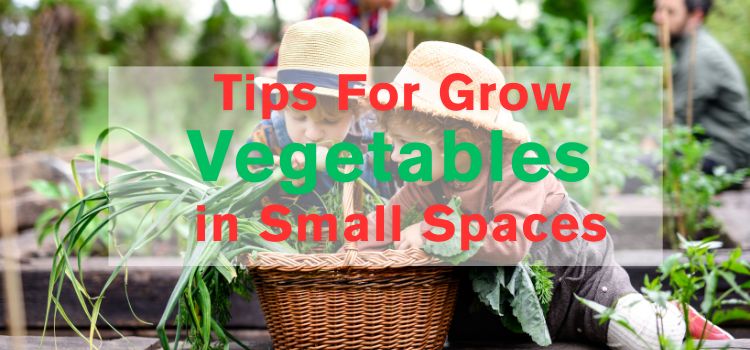As an Amazon Associate, I earn from qualifying purchases.
Growing vegetables in small spaces is something I never thought was possible until I tried it myself. When I first moved into a tiny apartment, I assumed I’d never be able to enjoy homegrown vegetables. But to my surprise, with the right techniques, I was able to transform my small balcony into a productive garden.
Whether you have a tiny backyard, a balcony, or even just a windowsill, there are plenty of ways to grow fresh vegetables in small spaces. In this blog post, I’ll share my personal experience and tips for growing vegetables in small spaces, so you can enjoy homegrown produce no matter how limited your space may be. Trust me, if I can do it, so can you!
Let’s explore some practical and easy solutions to help you get started with your mini vegetable garden.
Why Should You Grow Vegetables in Small Spaces?
Have you ever wondered how to make the most out of a small garden? Growing your vegetables in limited space can be both fun and rewarding. Whether you’re looking to save money, reduce your carbon footprint, or just enjoy fresh produce, there are plenty of reasons why growing vegetables in small spaces is a great idea. The best part is, you don’t need a lot of space or fancy equipment to get started. Even if you have just a small balcony or a windowsill, you can still grow vegetables!
When I first started gardening in a small space, I didn’t think I could grow anything. But over time, I learned how to make the most of every square foot, and the results were amazing. Now, I can enjoy fresh salads and vegetables all year round, even in my tiny space.
How to Choose the Right Vegetables for Small Spaces?
Choosing the right vegetables is key to growing a successful garden in small spaces. Some plants need a lot of room to grow, while others are perfect for confined areas. You want to choose vegetables that are compact, easy to maintain, and can grow well in containers. So, which vegetables are best for small spaces?

Leafy Greens: Lettuce, Spinach, and Kale
Leafy greens are some of the best vegetables for small spaces because they don’t take up a lot of room and grow quickly. Lettuce, spinach, and kale are perfect for containers, raised beds, or even hanging baskets. You can grow them on your balcony, in a window box, or even on a sunny kitchen countertop. Plus, they are packed with nutrients!
Tomatoes
If you love tomatoes but don’t have the space for a big garden, try growing compact tomato varieties. “Patio Princess” and “Tiny Tim” are two examples of small tomato plants that thrive in containers. With the right care, these varieties can produce a great harvest, even in limited space.
Radishes
Radishes are small root vegetables that are perfect for small gardens. They grow quickly and don’t require deep soil, making them ideal for shallow containers. They’re also a fun vegetable to grow because you can harvest them in as little as 30 days!
Herbs
Herbs are another great option for small spaces. Basil, parsley, thyme, and cilantro all grow well in containers and don’t need much room to thrive. You can grow them on a sunny windowsill or in a small garden bed. Fresh herbs will make your meals taste amazing, and they’re so easy to grow!
How to Maximize Your Space for Growing Vegetables?
Maximizing the space in your garden is crucial when working with limited space. You don’t want to waste any precious square footage. Here are some tips to help you make the most of your small garden:
Vertical Gardening
Vertical gardening is a fantastic way to save space while still growing plenty of vegetables. You can grow plants like tomatoes, peas, cucumbers, and beans vertically by using trellises, shelves, or even repurposing old ladders. This method allows your plants to grow upwards instead of outwards, saving valuable floor space.
Container Gardening
Container gardening is a popular option for growing vegetables in small spaces. Containers can be placed on balconies, patios, or even indoors. You can use a variety of containers, such as pots, buckets, or even old crates. Just make sure the containers have proper drainage to prevent waterlogging.
Raised Beds
If you don’t have much ground space, raised garden beds are a great solution. Raised beds provide better drainage and make it easier to control the soil quality. You can even build a raised bed using materials like wood, bricks, or stone, depending on your available space. They’re perfect for growing a wide range of vegetables, from carrots to lettuce.
Companion Planting
Companion planting is when you plant different types of vegetables together to help them grow better. Some plants grow well together and can help each other thrive, while others might compete for nutrients. For example, planting tomatoes and basil together can help both plants grow stronger. You can also plant marigolds to keep pests away from your vegetables.
How to Care for Your Small Space Vegetable Garden?
Taking care of your vegetable garden is key to a successful harvest. Even though you have limited space, it’s important to maintain proper care and attention to your plants. Here are some tips on how to keep your small space garden healthy:
Watering
Proper watering is essential for vegetable growth. Vegetables like tomatoes and leafy greens need consistent moisture to grow well. However, be careful not to overwater them, as this can lead to root rot. Water your plants early in the morning or late in the evening when the temperature is cooler.
Fertilizing
Since your garden is in a small space, you may need to fertilize your plants regularly to ensure they get the nutrients they need. Organic compost, fish emulsion, or slow-release fertilizers are great options for feeding your plants. Be sure to follow the directions on the fertilizer package to avoid overfeeding.
Pest Control
Pests can be a challenge in any garden, but they can be especially troublesome in small spaces. One natural way to keep pests away is by planting pest-repelling plants like marigolds, garlic, or lavender. You can also use organic pesticides or make your own using ingredients like neem oil or soap.
What Are Some Easy DIY Garden Projects for Small Spaces?
If you’re looking for some creative ways to spruce up your small vegetable garden, there are plenty of DIY garden projects you can try. These projects are fun, easy, and perfect for small spaces!
DIY Vertical Garden
You can build your vertical garden by using old pallets or wooden crates. Just attach the crates to a wall, fill them with soil, and plant your favorite vegetables. This project is simple to make, and it’s a great way to grow a variety of plants in a small space.
Indoor Herb Garden
If you don’t have much outdoor space, you can still grow herbs indoors. Use small containers or mason jars to create a cute indoor herb garden. Place your containers on a windowsill where they can get plenty of sunlight, and you’ll have fresh herbs right at your fingertips!
Hanging Planters
Hanging planters are another great option for small spaces. You can hang planters from your balcony or ceiling to save floor space. These planters are perfect for growing trailing plants like strawberries, peas, or even flowers.

Conclusion
Growing vegetables in small spaces is not only possible, it’s incredibly rewarding! With the right tools, techniques, and a little creativity, you can grow a variety of vegetables in even the tiniest of spaces.
Remember to choose the right vegetables for your space, maximize your growing area with vertical gardening and containers, and take care of your plants with proper watering, fertilizing, and pest control. Whether you’re growing in a tiny backyard, balcony, or windowsill, there are endless possibilities for growing fresh produce in small spaces.
Have you tried any of these tips for growing vegetables in small spaces? Which vegetable would you love to grow in your small garden? Feel free to share your thoughts or experiences below!
Frequently Asked Questions
What vegetables are easiest to grow in small spaces?
Leafy greens like spinach, lettuce, and kale are great options. Tomatoes, radishes, and herbs like basil and thyme also do well in small spaces.
Can I grow vegetables on my balcony?
Yes! Many vegetables, such as tomatoes, lettuce, and herbs, can be grown on a balcony in containers. Just ensure the plants get enough sunlight and have good drainage.
Do I need special soil for small space gardening?
Using high-quality potting soil is essential for container gardening. It provides the right balance of nutrients and ensures your plants have good drainage.
How can I make my small garden more efficient?
Consider using vertical gardening, raised beds, or stacking containers to maximize your space. Companion planting can also help make your garden more productive.
How often should I water my small space garden?
Water your plants regularly, but avoid overwatering. The frequency depends on the type of plants and the weather conditions, but most plants need water once or twice a week.

